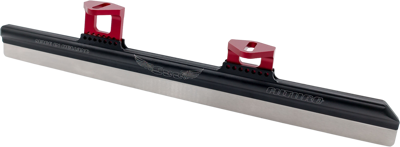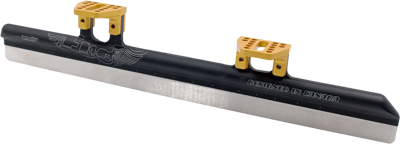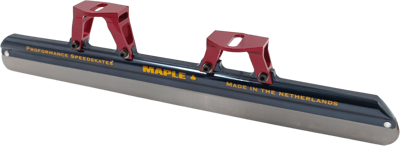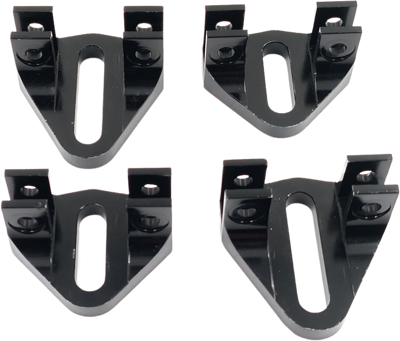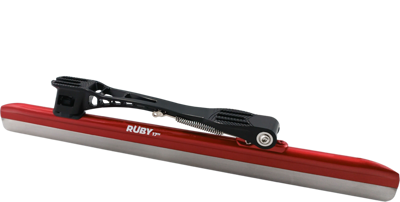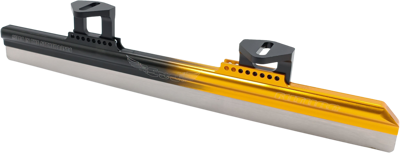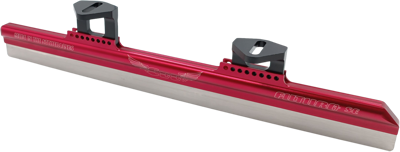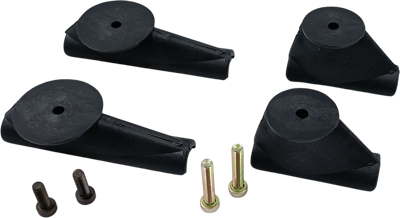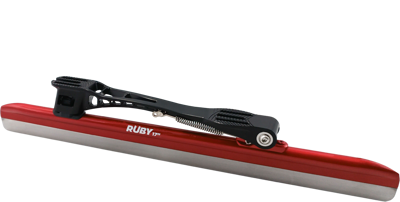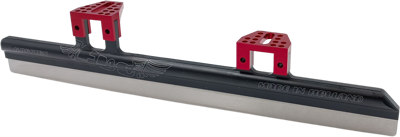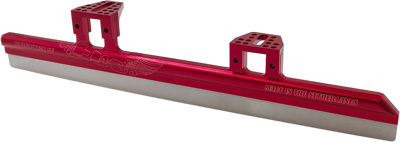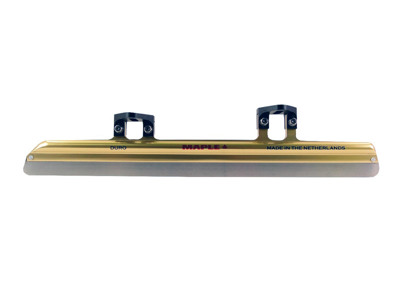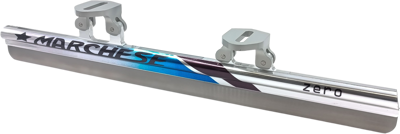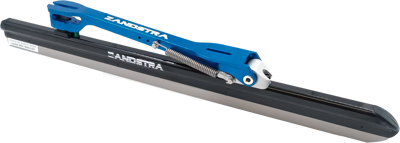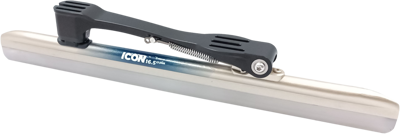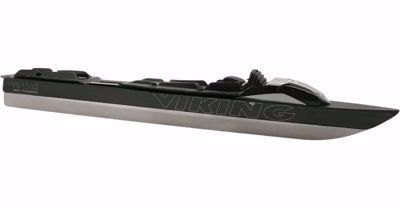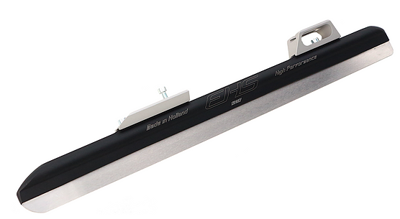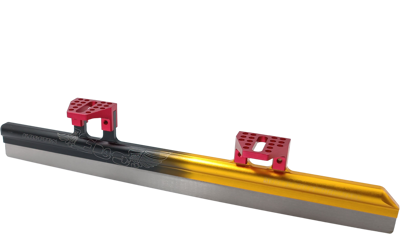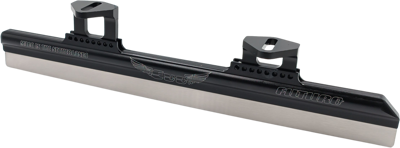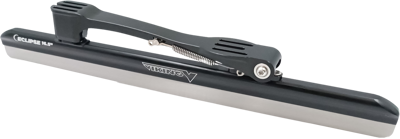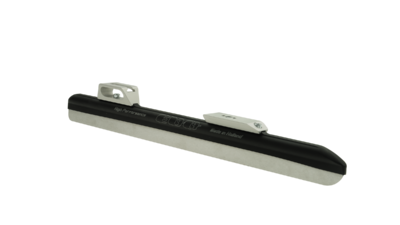Ice skating blades
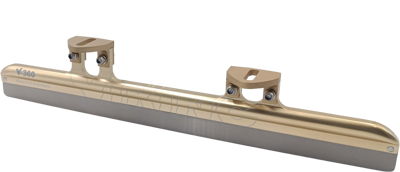
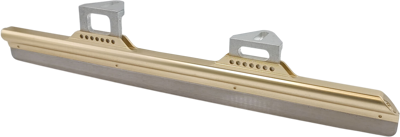

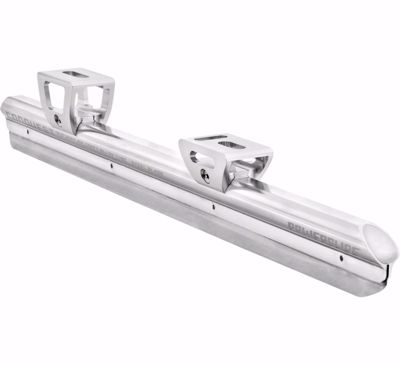
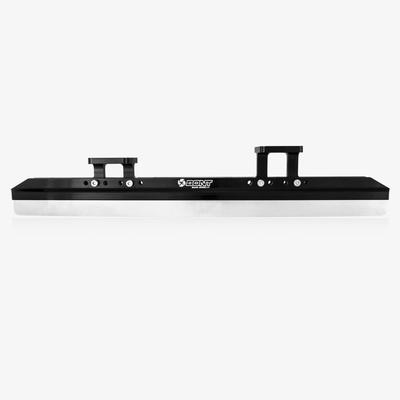
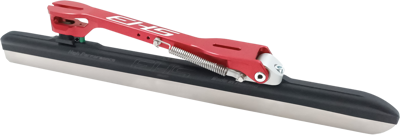
Ice skating blades: choosing the right foundation for your skates
We offer a variety of skate blades for mounting under skate boots, such as klapskate frames, click noren frames, fixed skate frames, and shorttrack frames. On this page, we explain everything about skate blades and what to consider when purchasing them.
What to look for when buying a skate frame?
When buying a skate blade, pay attention to the following aspects: the hardness of the blade, the rocker (rounding), the mounting points, and for klapskates, also the pivot point.
The hardness of the blade
The quality and hardness of the skate blade largely determine the price. The harder the blade, the longer it lasts, the slower it dulls, and the less glide resistance the skate has. The steel is made harder by adding extra carbon. This makes the blade harder. The disadvantage of this extra carbon is that it attracts moisture and makes the blade more brittle. More expensive/harder blades rust faster. Therefore, never store your skates in plastic protectors (these are only suitable for walking on them), but use fabric skate covers. Hardness is expressed in Rockwell (HRc), where a higher number indicates higher hardness. 64 HRc is the hardest and suitable for serious skaters; 56-58 HRc is excellent for recreational skaters.
The rocker (rounding)
The rocker of a skate blade is very important. On a skate frame without a rocker, you can hardly take turns or steer. If you place your skate blade on a flat surface, you will see that it is slightly curved/rounded. The rocker is expressed in meters; a rocker of 22 meters means that the skate is on an imaginary circle with a diameter of 22 meters. Do you only skate on natural ice? Because you ride straight for longer on natural ice, a flatter blade is more stable. A 25m rocker is then advisable. The lower the rocker (i.e., the rounder the blade), the easier the blade steers. It will not surprise you that short-track skaters sometimes use an 8m or 9m rocker. Long-track skaters typically use 21m, 22m, or 23m. Sprinters, who are deeper in the turns, sometimes opt for 20m or 21m. As a recreational skater, the difference between 21m or 23m is barely noticeable. Many skate blade suppliers indicate that a good rocker is already present in the blades, but our experience is that the quality of the factory rocker is not always sufficient. Therefore, we standardly grind the rocker of all skates we sell to 23m with a special machine. If you want a different rocker, please indicate it in the comments when completing your order.
If you are looking for a klapskate, you also need to pay attention to the bridge and pivot point. You can read all about this on the klapskate frames page.
Which length?
The length of your skate blades is indicated in inches, shoe size, or centimeters. Generally, you can use the following lengths:
- Shoe size 35-37: 15-16 inch
- Shoe size 38-40: 16.5 inch
- Shoe size 39-42: 17 inch
- Shoe size 43-45: 17.5 inch
- Shoe size 45+: 18 inch
Mounting and pitch
Skate blades are attached to the skate boot using M5 bolts and nuts. It varies by brand and type whether the nut or the bolt goes into the bottom of the boot. With Viking skate boots, the bolt with an Allen key head goes into the bottom of the boot and the nut into the bridge of the skate blade; with most other brands, it's the other way around. Bolts, nuts, and other mounting tools can be found here.
When attaching and mounting, it's also important to pay attention to the so-called pitch. The pitch is the distance between the two mounting points on the boot and blade. This must match for both the blade and the boot. Furthermore, the slot in the blade and boot must be perpendicular to each other so that you can adjust the blade in both length and width. Ensure that the back of the blade is directly under the heel; at the front, you can set the blade slightly inward.
Why choose Top-skate for your skate blades?
At Top-skate, based in Holland, the heart of ice skating, we leverage 25 years of experience to bring you the finest selection of skate blades and frames. We pride ourselves on having the largest stock, ensuring you find the ideal foundation for your skating style. Experience our fast, worldwide shipping and equip yourself for peak performance. Choose Top-skate for quality, expertise, and unparalleled service.
